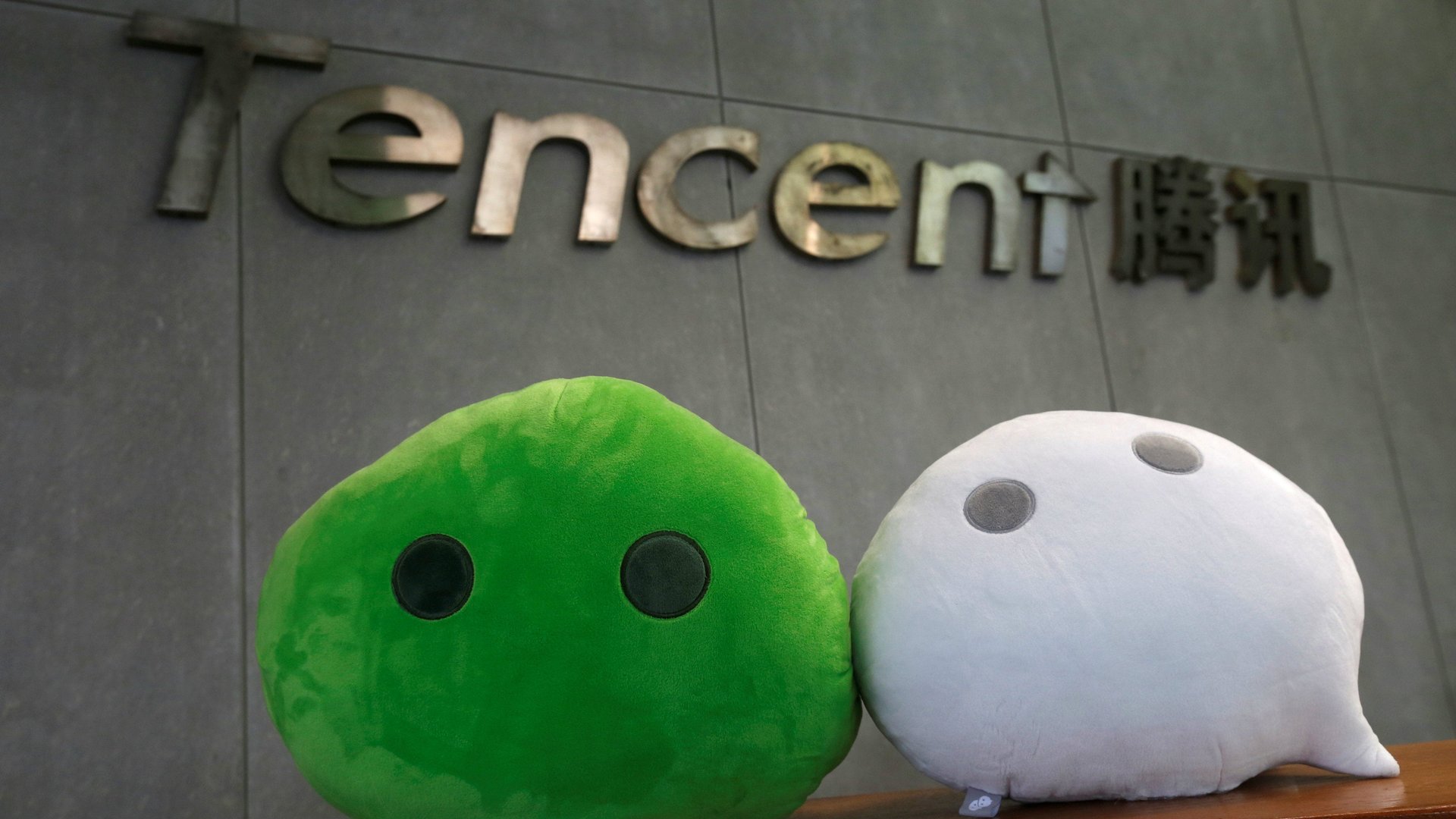Uber’s next investor could be the Chinese company that has backed its rivals
A Chinese social media giant might just join a massive Uber share purchase effort led by Japan’s SoftBank, which, along with other investors, is seeking to acquire up to 14% of the US ride-hailing company. The process, known as a tender offer, is unfolding privately and could take weeks to complete. If it does go through, it would further concentrate power over the future of ride-hailing in the hands of a few key investors.


A Chinese social media giant might just join a massive Uber share purchase effort led by Japan’s SoftBank, which, along with other investors, is seeking to acquire up to 14% of the US ride-hailing company. The process, known as a tender offer, is unfolding privately and could take weeks to complete. If it does go through, it would further concentrate power over the future of ride-hailing in the hands of a few key investors.
Names and numbers involved in the deal are beginning to leak out. The currently offered share price values the company at $48 billion, or about 30% of what the company’s most recent valuation was, according to Bloomberg. With an IPO looking far away, and Uber facing yet more negative publicity regarding its business tactics and approach to customer privacy, that may be tempting for existing shareholders.
Menlo Ventures and Benchmark Capital are among two of the early investors indicating they could sell their shares, according to Softbank. And, according to TechCrunch and The Wall Street Journal (paywall), Tencent is now looking to join SoftBank in buying out existing Uber shareholders, a move that would expand its growing reach in the ride-hailing industry worldwide.
Best known as the maker of WeChat, the ubiquitous chat app that has become a way of life for Chinese smartphone owners, Tencent has consistently invested in ride-hailing companies, first in China, then abroad. It was one of the earliest backers of Didi Dache which once competed fiercely with the Alibaba-backed Kuaidi Dache. It later helped engineer a merger between those two companies to create Didi Chuxing, in which which it retains a stake. In a major shakeout after heavy spending by Didi and Uber in China, the Chinese firm purchased Uber’s China unit in 2016, giving Didi a near monopoly on ride-sharing in China. Uber, meanwhile, took a hefty stake in Didi.
This year, Tencent led a $1.1 billion round in Ola, India’s main Uber competitor, and also reportedly put over $100 million in Go-Jek, a motorbike-centric ride-hailing startup that’s popular in Indonesia. Stateside, in 2015, it participated (paywall) in a $100 million funding round in Lyft, led by Carl Icahn (paywall). It has not invested in Grab, Uber’s chief rival across Southeast Asia, but Didi, along with Softbank, put $2 billion into the Singapore-based firm in July. (Tencent also has a 12% stake in Snap, and a 5% stake in Tesla.)
Overall, Tencent’s reach in terms of the number of ride-hailing firms it’s invested in comes close to that of SoftBank, which owns stakes in Didi, Grab, Ola, Brazil’s 99, and perhaps Uber soon enough. Its involvement in SoftBank’s tender offer highlights the possibility that all of the world’s major ride-hailing companies might ultimately be controlled by the same entities. That could have policy implications regarding anti-trust laws and cross-border data privacy. Tencent did not respond to Quartz’s calls or emails regarding its potential investment in Uber. Softbank and Uber declined to comment.
Chris Lane, an analyst at Bernstein Research in Hong Kong, describes Uber’s 30% reduced valuation as a steep discount that stems from the company’s numerous crises, rather than a sort of verdict on the outlook for ride-hailing. If Tencent and SoftBank are indeed vying to control ride-hailing all over the world, the tender offer for Uber lets them buy a stake in a valuable player while it’s reeling from the fallout from an IP dispute, sexual harassment revelations, and a data breach.
“Clearly they wouldn’t be able to secure any shares at this price if everything was going well… but as you know there have been a number of issues over the last year,” says Lane. “My read is SoftBank is using this to try to extract the best price possible.”